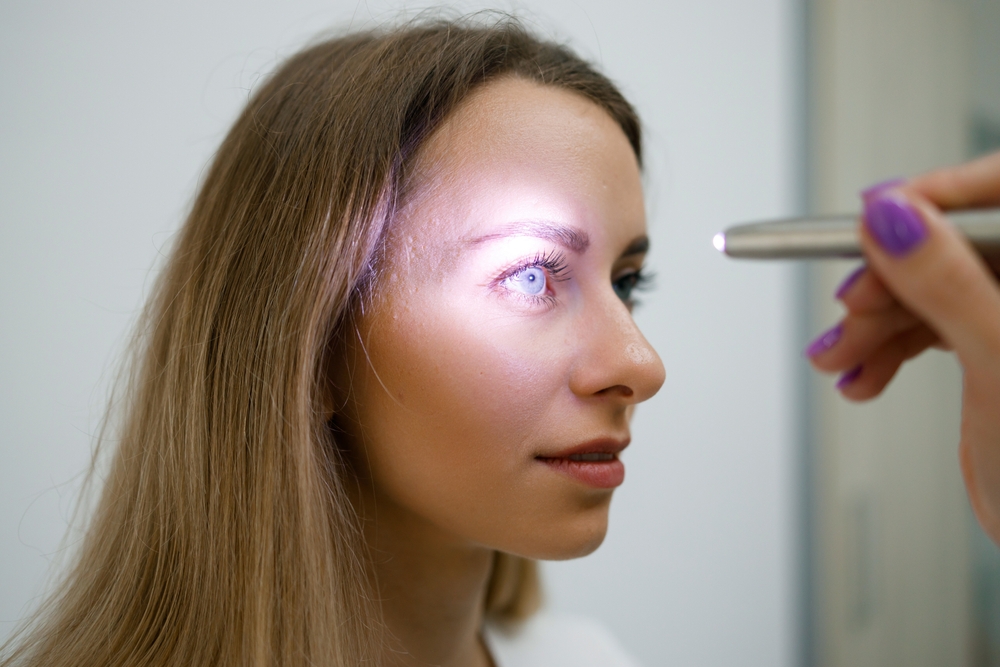
Brain injuries can have a profound impact on vision, affecting everything from depth perception to reading ability. Whether caused by a concussion, stroke, or other neurological conditions, these visual disruptions can make daily activities challenging and frustrating. Neuro-optometric vision rehabilitation is a specialized approach that helps patients regain visual function and improve their quality of life.
The Connection Between Brain Injuries and Vision
The brain and eyes work closely together to process visual information. When a brain injury occurs, this connection can be disrupted, leading to a variety of vision-related issues, including:
Blurred or double vision – Difficulty focusing on objects or seeing multiple images at once.
Difficulty with eye tracking – Struggles in following moving objects or smoothly transitioning between visual points.
Light sensitivity – Increased discomfort in bright environments.
Reduced depth perception – Trouble judging distances, which can affect balance and coordination.
Visual field loss – Missing areas in the field of vision, impacting navigation and spatial awareness.
These challenges can make everyday tasks—such as reading, driving, or even walking—more difficult, leading to frustration and decreased independence.
How Neuro-Optometric Vision Rehabilitation Helps
Neuro-optometric vision rehabilitation is a personalized treatment program designed to retrain the brain and eyes to work together more effectively. Unlike standard vision therapy, which primarily focuses on strengthening the eyes, Neuro-optometric vision rehabilitation targets the neurological components of vision affected by brain injuries.
Before beginning treatment, a neuro-optometrist conducts a thorough assessment to determine how the brain injury has affected vision. This includes tests for visual acuity, eye tracking, coordination, and perceptual processing.
Based on the evaluation, an individualized rehabilitation program is developed. Treatment may include:
Therapeutic lenses and prisms – These specialized glasses help correct double vision, improve depth perception, and reduce strain.
Visual exercises – Activities that improve eye movement control, tracking, and focusing abilities.
Light therapy – Techniques to manage light sensitivity and improve neurological responses to visual stimuli.
Balance and spatial training – Exercises to enhance body coordination and navigation in physical spaces.
The Benefits of Neuro-Optometric Vision Rehabilitation
Patients undergoing neuro-optometric vision rehabilitation often experience significant improvements in their daily lives. One of the most noticeable benefits is enhanced visual clarity. Many patients find that their vision becomes sharper, reducing blurriness and making it easier to focus on objects and text. This improvement can significantly impact activities such as reading, working on a computer, or recognizing faces.
Another key benefit is better coordination and balance. Vision plays a crucial role in spatial awareness, and when it is disrupted by a brain injury, movement can become difficult or unsteady. Through targeted rehabilitation, patients often regain confidence in their ability to move safely and navigate their environment without fear of stumbling or losing balance.
Neuro-optometric vision rehabilitation can also help reduce eye strain and headaches. Many brain injury patients suffer from persistent discomfort due to difficulties in focusing or processing visual information. By retraining the visual system, therapy can alleviate these symptoms, making daily activities more comfortable and less fatiguing.
For those who struggle with reading and comprehension, vision rehabilitation can make a significant difference. Improved eye tracking and focusing abilities allow patients to read more easily, process information more effectively, and reduce frustration with text-based tasks. This can be particularly beneficial for students and professionals who rely heavily on reading for work or study.
Ultimately, these improvements contribute to greater independence. As visual clarity, balance, and comfort improve, patients can perform everyday tasks with less difficulty. Whether it’s driving, working, or simply enjoying hobbies, neuro-optometric vision rehabilitation helps individuals regain control over their lives and restore their sense of normalcy.
Take the Next Step Toward Recovery
For individuals recovering from a brain injury, vision challenges can be a major obstacle to regaining independence and quality of life. Neuro-optometric vision rehabilitation provides a targeted, science-backed approach to restoring visual function and improving overall well-being. By addressing the underlying neurological causes of vision disruptions, this therapy helps patients take meaningful steps toward recovery.
If you or a loved one is experiencing vision difficulties after a brain injury, schedule a comprehensive evaluation with Advanced Vision Therapy Center to explore personalized treatment options that can support your recovery. Visit our office in Boise, Idaho, or call (208) 377-1310 to book an appointment today.


